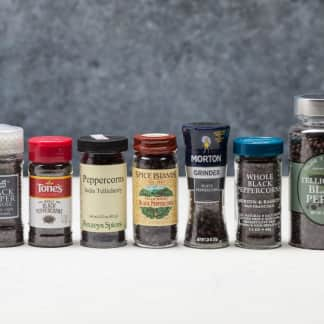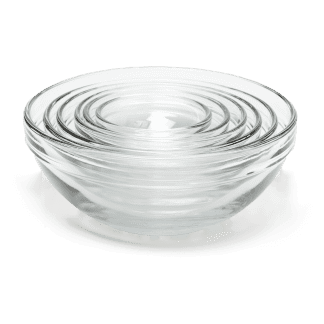Of all the ingredients we call for in our recipes, salt might be the most important. It acts not only as a seasoning but also as a flavor enhancer that brings out the best in other ingredients: A sprinkle of salt makes a tomato’s flavor more vibrant and adds complexity to caramel. Salt can also improve the texture of some foods: Dried beans soaked in a saltwater brine are less likely to burst, and turkey meat and skin rubbed with salt before roasting will be juicier and crispier, respectively. We also use salt to pull excess moisture from produce such as cabbage and eggplant before adding them to slaws or stir-fries.
While we call for both table and kosher salt in our recipes, we generally prefer the larger, coarser grains of kosher salt for rubbing onto meat or sprinkling over foods. A handful of smaller companies and artisans manufacture kosher salt, but two major brands, Diamond Crystal and Morton, dominate the American market. While both are labeled kosher salt, the grain sizes of these two products are surprisingly different, so they’re not interchangeable. To make sure your food isn’t bland or overseasoned, especially when using kosher salt in a large quantity to make a brine or a salt rub, it’s important to know how the two major brands differ.










